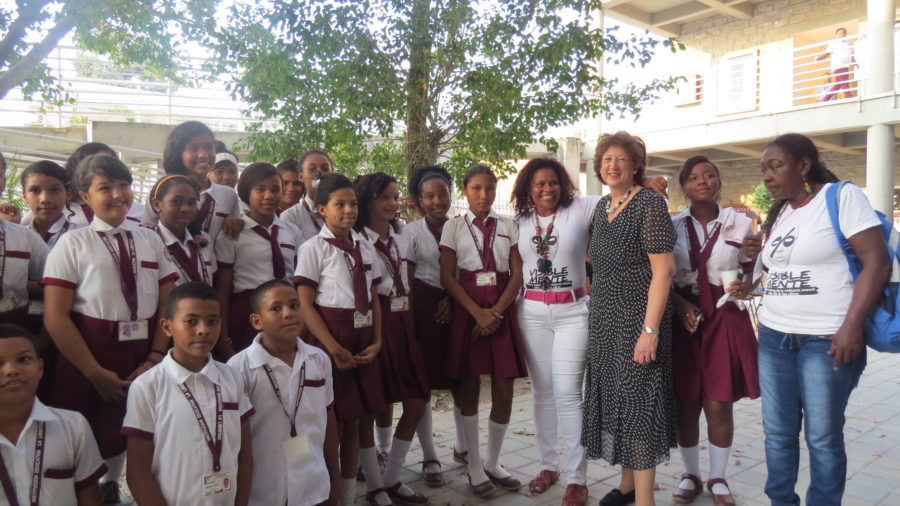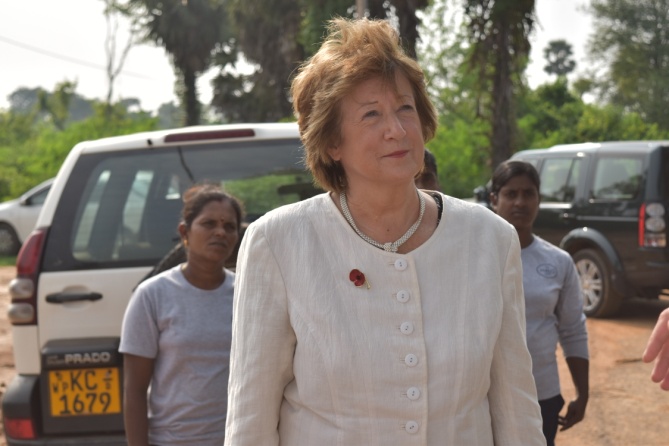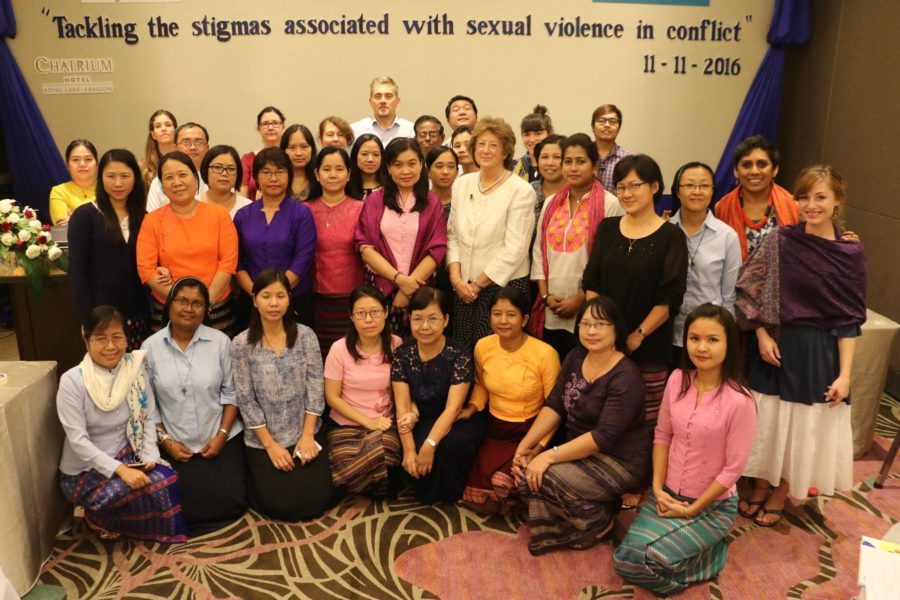28th November 2016 London, UK
Tackling the stigma of sexual violence

25 November marked the International Day for the Elimination of Violence against Women.
As the Prime Minister’s Special Representative on Preventing Sexual Violence in Conflict, I have seen first-hand the impact of sexual violence against women and girls in countries like Bosnia, Burma, Colombia, DRC, Iraq, Kosovo, Nigeria and Sri Lanka. I have seen the physical and psychological impact and how the stigma associated with it can prevent individuals and communities from healing.

The Rt Hon Baroness Anelay of St Johns DBE, Minister for Human Rights
Raising awareness, supporting survivors and bringing perpetrators to justice are all crucial, but we must go further. We must tackle the stigma too. Otherwise, survivors of sexual violence will continue to be treated differently, denied justice and exposed to the risk of further violence. Communities will continue to be denied reconciliation and hope for a safe and prosperous future.
Defining stigma and understanding the local perspective is the first step to tackling it. We know that it affects women, girls, men and boys, but we also know that every country has different cultural and social norms, and community structures. That means that stigma comes in different forms and is experienced in different ways in different parts of the world.
Once we fully understand the local context, we must then start to challenge the attitudes and cultural norms that accept, condone or justify sexual violence. We must change perceptions and educate people to understand that the blame and shame should lie with the perpetrator and the perpetrator alone.
Over the last nine months, across the world, our Embassies and High Commissions have been holding workshops – with survivors, practitioners, civil society, media and faith leaders – to understand the specific challenges to tackling stigma in that country.

From 28-30 November, we will be hosting an event at Wilton Park in the UK, to bring together survivors and experts to review the findings of these workshops, to discuss the impact of stigma and to plan next steps. We will draw together recommendations to develop Principles for Global Action, to guide international activity around this campaign.
Stigma is very much a shared challenge and tackling it must be a shared enterprise. These Principles will be owned by everyone involved in the campaign, not just the UK Government.
Early next year, I will take the Principles for Global Action to the UN and, on behalf of everyone involved in the ‘ending stigma’ campaign, I will urge international partners to join us and to play their part by committing to take forward the recommendations.
Tackling survivor stigma is a huge challenge, but if we face it together I believe it is a challenge we can overcome. In doing so, we would be transforming the lives of survivors and future generations afflicted by the scourge of sexual violence. That is too great a prize for us to ignore. I hope you will join me in working to end stigma for good.
Hi dear madame!
I called am Alain Kabenga a survivor of conflict related sexual violence from DRC, I am joining you to this great work to end stigma in lives of survivors, a survivors this are the majors stigma we are facing here in our country of asylum; “The shame, the fear and confusion” of:
– We fear to lose our masculinity, our manhood, if people found out we have been sexually rape.
– We fear to be misjudged, misinterpreted, that maybe no one will ever understand us.
– Our african culture which consider us as cursed, worthless, and our masculinity is eradicated
– The society mindset about male sexual violence, they say men cannot be raped, because is strong, maybe we shoul be homosexuals so we are rejected.
– The church doctrine, enforce us into stigma.
– The regional law (african laws) which consider us as homosexuals, due to the anti-gays law in different countries of africa.
these are the biggest enemi of our freedom.
– We are confused about our Gender, and questions goes accross our minds, why it happened to me, why did I attack the person who raped me?.
– Some of us think that they are alone, that they are the only people who experienced that.
That’s why many of us chose the culture silent, and decide to keep the secret and not disclose.
That is what I though that I could share as joining you in this work to end sexual violence and the stigma.